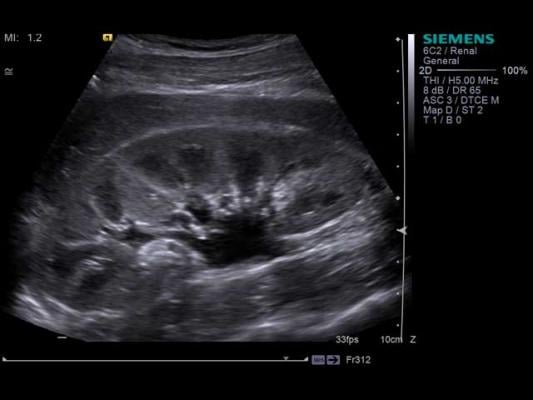
February 5, 2018 — Sacs of fluid in the kidneys may indicate there is also blood vessel damage in the brain and a heightened risk of stroke, according to preliminary research presented at the American Stroke Association’s International Stroke Conference 2018, Jan. 24-26 in Los Angeles.
Renal cysts (sacs of fluid in the kidneys) are common in older people and usually cause no symptoms. The cysts are often discovered when an ultrasound or computed tomography (CT) scan is done for another purpose. Traditionally, renal cysts are regarded as benign kidney structural changes. Recent research suggests that renal cysts might represent an early stage of kidney damage. Since the kidney and brain have similar vascular anatomy and physiology, researchers wondered whether they might also signal blood vessel damage in the brain circulation and a heightened risk of stroke.
In a study of 2,984 people (average age 72 years, 57 percent female) from the general population in Rotterdam, the Netherlands, who underwent a kidney ultrasound, researchers examined medical records and found:
Stroke prevalence was 1.63 times higher in people with a single renal cyst (found in 17 percent of participants) compared to no cysts;
Stroke prevalence was even higher (2.14 times higher risk) in those with multiple renal cysts (found in 6.6 percent of participants) compared to those without cysts; and
The associations were independent of other stroke risk factors such as high blood pressure, diabetes and age.
The Rotterdam Study is funded by Erasmus Medical Center and Erasmus University, Rotterdam, Netherlands Organization for the Health Research and Development (ZonMw), the Research Institute for Diseases in the Elderly (RIDE), the Ministry of Education, Culture and Science, the Ministry for Health, Welfare and Sports, the European Commission (DG XII), and the Municipality of Rotterdam.
For more information: www.strokeassociation.org


 November 12, 2025
November 12, 2025 









